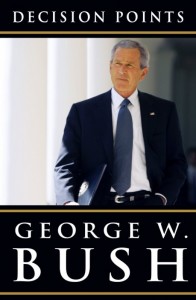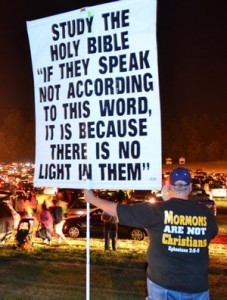
Photo credit: Vasiliy Baziuk/Messenger Post
These words were angrily spit at the thousands of people peacefully passing through the entrance to the Hill Cumorah Pageant’s last showing for 2013—an event which was attended by this writer and his wife.
Friends of ours participated in the Pageant this year. They played various roles up front. We met them after we entered, and they were dressed in their appropriate costumes and headdresses.
Other friends were part of the groups verbally, abusively accosting people as they entered.
(Fascinating, huh?)
It was truly such a fascinating range of thoughts and emotions as we proceeded from our parked vehicle into the Pageant grounds. You could certainly call it surreal. Many people—many of them families, with young children—quietly progressed toward the entrance. As we walked, the first thing you notice—you can’t miss it!—is a man shouting awful things over a bullhorn. Then, as you reach the entrance, emergency vehicles surround it, lights flashing, since traffic needs to be managed on these nights. At this entrance are a dozen or two folks aggressively passing out literature to everyone who passes by. (I was glad when they did seem to allow for refusals, though.)
Once you have passed through the somewhat foreboding entrance, you are greeted by many friendly, costumed folks who will direct you wherever you’d like to go, if you desire. No aggression here, just welcome.
Yet, the angry, shouting voice marches on. His bullhorn is directed at the seated crowd, inside the event.
“It’s 19th-century fiction! Joseph Smith was a [insert several negative things here]!!”
Jen and I proceeded to the popcorn stand (she loves snacks while taking in a show!) and waited there in line, marveling at the very strange environment. The yelling man (actually, there may have been at least two) continued, audible over the sounds of a passive crowd of hundreds, and thousands.
As the line progressed we noticed that one of the helpers was wearing a baseball shirt from our home school sports league! We did not recognize this boy, but introduced ourselves and had a nice chat with him. He and his sister were helping their grandparents serve the popcorn and Pepsi. (Apparently not all Christians feel the need to venomously denounce every person at this event?)
When the show began, the yelling stopped. I was grateful; several times throughout the night I noticed and was grateful that the grating (degrading?) invectives had ceased being launched from just outside the peaceful confines of the temporary outdoor theater.
The Pageant itself was equally fascinating to me, a non-LDS person. We are perhaps more familiar with the LDS church based on our living in this town, and our friendship with members of that church, but I had never seen that presentation before. The thing that most struck me is how the story seemed to mimic so many familiar Bible stories, but with different names and places. The story’s elements seemed to be “drawn from” (or at least be very similar to) sections of both the Old and New Testaments. The general story is the tale of a family of Israelites heeding the prophets’ warnings of the destruction of Jerusalem (pre-exile) and eventually finding their way to North and South America, and all that transpired there, all the way up to Joseph Smith being shown the location of the brass plates containing the stories we had just been told of that family and their descendants.
It really was fascinating.
But even more fascinating—and my main point here today—was the angry voice(s) starting up again as soon as the stage show was finished.

Photo credit: rochester.ynn.com
I really don’t fault the motives of these folks. They are sincerely wanting to help people whom they see as on the path to hell. In their minds and hearts, it is vitally important for the folks they are “helping” (and maybe for their own consciences?) that they speak out as often as possible against this boldfaced lie.
The trouble is, sincerity and right-motives don’t always align with truth and liberty—not to mention religious freedom that we so value in this country.
C. S. Lewis said the following regarding “having others’ best interest in mind” as the motivation for your actions:
“Of all tyrannies, a tyranny sincerely exercised for the good of its victims may be the most oppressive. It would be better to live under robber barons than under omnipotent moral busybodies. The robber baron’s cruelty may sometimes sleep, his cupidity may at some point be satiated; but those who torment us for our own good will torment us without end for they do so with the approval of their own conscience.”—C. S. Lewis
I don’t think this need only apply to governments and tyrants. There seems to be a desire to control deep in the heart of mankind. It affects all of us, but perhaps some more than others. And when it is fueled by either a divine directive or just a love for your fellow man …
well, it really gets quite messy.
What I wish I had said to the man with the bullhorn was, “Why on earth are you so angry? What do you hope to accomplish by shouting such nasty things at these people with such audible and visible animosity?” I did not. I honestly was mostly in shock at how anyone could find a logical reason for such actions.
But I do wish I had.
If you are reading this now and you were there this year (2013) or previous years on either side of that protester fence, I’d love to hear your comments as well. I plan to ask our friends who are involved with at least one of the protestor groups how they think they are helping people. They (our friends) were not shouting … so perhaps their group is different?
Regardless, the issue comes down to a religious need to be right.
The article linked below from Slate.com, written in July 2012, posed the same question that I have been asking since Saturday night (my emphasis added):
“The contrast between their messages of intolerance, their anger and hate, and our music, sense of fellowship and community does a lot to highlight our message of Christian love. They say we’re not Christian,” he continued. “But who’s acting more Christian now?”—Volunteer security guard, Hill Cumorah Pageant
Westboro Baptist church is often maligned for its tactics: shouting hateful things, wearing and hoisting those messages on clothing and banners. These people seemed to be doing the same thing.
When will we Christians learn to let Holy Spirit do the guiding into all truth?
Perhaps we never will.
do what is right, love mercy,
and walk humbly with your God
—Micah 6:8
For further information and research, please click these links. There are articles and videos that shed more light on what I have written here above. Always good to have a bigger picture!


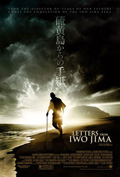 I’ve mentioned here many times that I am learning how crucial it is to see life from multiple angles. Getting not only information from people with opposing viewpoints, but really trying to step into their shoes; see from their perspective. It’s just so crucial to communication, to cooperation, interaction… to society in general.
I’ve mentioned here many times that I am learning how crucial it is to see life from multiple angles. Getting not only information from people with opposing viewpoints, but really trying to step into their shoes; see from their perspective. It’s just so crucial to communication, to cooperation, interaction… to society in general.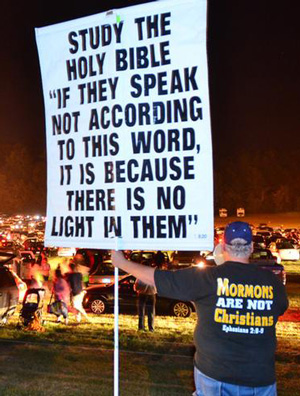


 Mondays are video game day at the Campbell Household. We, the parents, try to limit the hours (and days) of video game entertainment here. (This is a learned behavior; after seeing that much less stringent limitations on video game time producing mean-spirited, selfish children, if not mindless automatons.)
Mondays are video game day at the Campbell Household. We, the parents, try to limit the hours (and days) of video game entertainment here. (This is a learned behavior; after seeing that much less stringent limitations on video game time producing mean-spirited, selfish children, if not mindless automatons.) I’m never one to do something “because that’s the way we’ve always done it”. My wife accuses me often of nearly the opposite: doing something differently simply for the sake of being different!
I’m never one to do something “because that’s the way we’ve always done it”. My wife accuses me often of nearly the opposite: doing something differently simply for the sake of being different! A long time ago I proffered an idea to Apple, that they could revolutionize the media industry by doing something with TV and movies similar to what they did with music. (Really. It was about the time the iTunes store came into existence. Before they offered video through the store, though. It was March of 2005.) I knew I was onto something when a few days later I received a response in serious “legalese” letting me know that Apple was grateful for my feedback, but could not accept unsolicited product ideas at this time.
A long time ago I proffered an idea to Apple, that they could revolutionize the media industry by doing something with TV and movies similar to what they did with music. (Really. It was about the time the iTunes store came into existence. Before they offered video through the store, though. It was March of 2005.) I knew I was onto something when a few days later I received a response in serious “legalese” letting me know that Apple was grateful for my feedback, but could not accept unsolicited product ideas at this time.
 Are you a current TV show watcher? Do you watch one or more new and/or current television shows as they air new episodes weekly? I don’t qualify as (anywhere close to) an avid current TV Watcher, but I do enjoy a few currently running shows.
Are you a current TV show watcher? Do you watch one or more new and/or current television shows as they air new episodes weekly? I don’t qualify as (anywhere close to) an avid current TV Watcher, but I do enjoy a few currently running shows.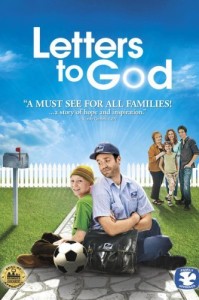 The reviews of
The reviews of 